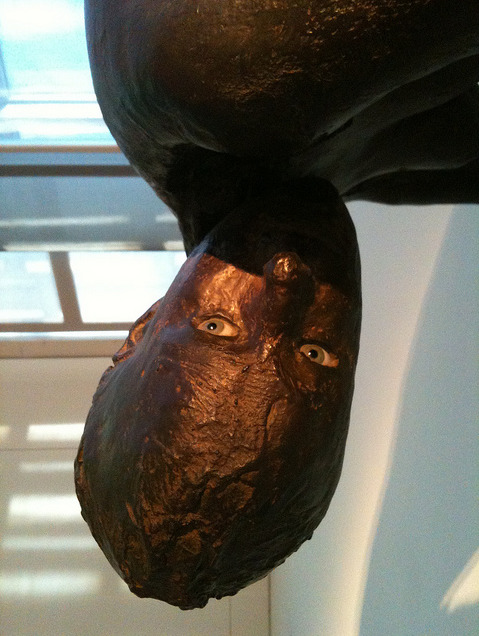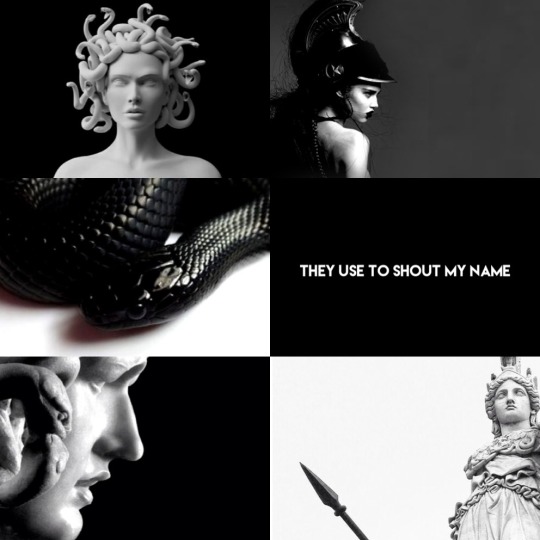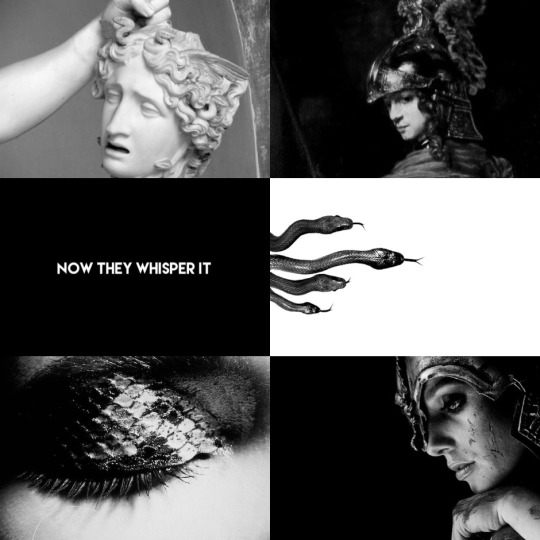Quote
I didnt call you.
I didnt call you at all…
Who do you think you are?…
There is nothing between us.
Sylvia Plath, “Medusa,” from Ariel: The Restored Edition (via lifeinpoetry)
178 notes
·
View notes
Quote
Each of the gods, perfect
cries out from a perfect throat:
you are useless,
no marble can bind me,
no stone suggest.
H.D., Pygmalion.
(via xshayarsha)
331 notes
·
View notes
Photo


this is how you learn prayer.
- Margaret Atwood, Quattrocento
1K notes
·
View notes
Text
The Nine Muses of Mnemosyne
Calliope is the muse who presides over eloquence and epic poetry; so called from the ecstatic harmony of her voice. She is spoken of by Hesiod and Ovid as the "Chief of all Muses."[1]
According to Hesiod, she was also the wisest of the Muses, as well as the most assertive. Calliope married Oeagrus close to Pimpleia, Olympus. She is said to have defeated the daughters of Pierus, king of Thessaly, in a singing match, and then, to punish their presumption, turned them into magpies. (see Ovid, Metamorphoses.
Calliope is usually seen with a writing tablet in her hand. At times, she is depicted carrying a roll of paper or a book or wearing a gold crown.
The Italian poet, Dante Alighieri, in his Divine Comedy, makes reference to Calliope:
Here rise to life again, dead poetry!
Let it, O holy Muses, for I am yours,
And here Calliope, strike a higher key,
Accompanying my song with that sweet air
which made the wretched Magpies feel a blow
that turned all hope of pardon to despair.
Kalliope
0 notes
Photo


WOMEN OF MYTHOLOGY | Amphitrite, The Queen of the Sea
Amphitrite was the goddess and queen of the sea in Greek mythology. She was said to be one of the fifty Nereids, sea nymphs who were the daughter of Nereus and Doris. She was also the wife of the god of the sea, Poseidon, and mother to his son, Triton and daughters Rhodes and Benthesicyme. Amphitrite was essentially the personification of the sea, as well as the mother of the many beasts that roamed its expanse.
She is most famously acknowledged in the adventures of Theseus. When King Minos demanded that Theseus prove that he was in fact a son of Poseidon, he threw a golden ring into the ocean to test the hero. With the aid of Amphitrite and her sea creatures, Theseus was able to recover the ring. She also welcomed the hero into her own palace and presented him with a golden crown to give to Ariadne as a wedding gift.
4K notes
·
View notes
Photo








ART PRINTS BY BELLA BLUE PHOTOGRAPHY
Good Morning Beautiful Sea
Sea Green
Sparkle and Shine
The Magical Sea
Ocean Blues
Sea Lullaby
Feel the Sea
Sea-Licous
Also available as canvas prints, T-shirts, tapestries, stationery cards, laptop skins, wall clocks, mugs, rugs, duvet covers, All over print shirts, Phone cases, Throw pillows, tote bags and More!
5K notes
·
View notes
Photo


Kiki Smith - Lilith, 1994 - Bronze, silicon, and glass.
“In medieval Jewish lore, Lilith was Adam’s first wife. When she demanded to be Adam’s equal, she was evicted from the Garden of Eden. Lilith flew away to the demon world, replaced by the more submissive Eve. Smith catches us off guard with Lilith’s pose and placement. Most sculptures receive our gaze passively, but Lilith stares back with piercing brown eyes, ready to pounce.”
387K notes
·
View notes
Photo


GREEK MYTHOLOGY: Medusa and Athena
Medusa was originally a ravishingly beautiful maiden, but because Poseidon had raped her in Athena’s temple, the enraged Athena transformed Medusa’s beautiful hair to serpents and made her face so terrible to behold that the mere sight of it would turn onlookers to stone. In Ovid’s telling, Perseus describes Medusa’s punishment by Minerva (Athena) as just and well earned. [x]
but Medusa’s “punishment” was not a punishment at all but rather a gift from the goddess. Athena could not punish Posiden for what he’d done so she made sure Medusa would never be at the mercy of a man again
15K notes
·
View notes
Text
De morte prologus, Dialogus inter Mortem et Magistrum Polikarpum
(…) Uźrzał człowieka nagiego,
Przyrodzenia niewieściego,
Obraza wielmi skaradego,
Łoktuszą przepasanego.
Chuda, blada, żołte lice
Lści się jako miednica;
Upadł ci jej koniec nosa,
Z oczu płynie krwawa rosa;
Przewiązała głowę chustą,
Jako samojedź krzywousta;
Nie było warg u jej gęby,
Poziewając skrżyta zęby;
Miece oczy zawracając,
Groźną kosę w ręku mając;
Goła głowa, przykra mowa,
Ze wszech stron skarada postawa –
Wypięła żebra i kości,
Groźno siecze przez lutości.
0 notes





